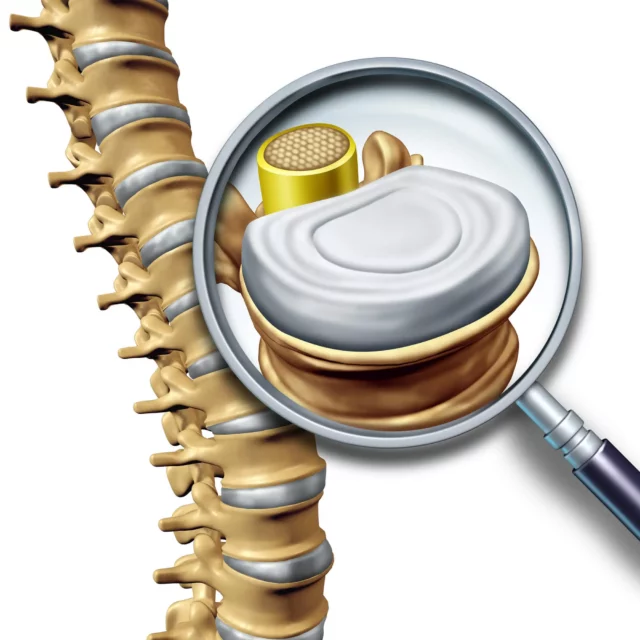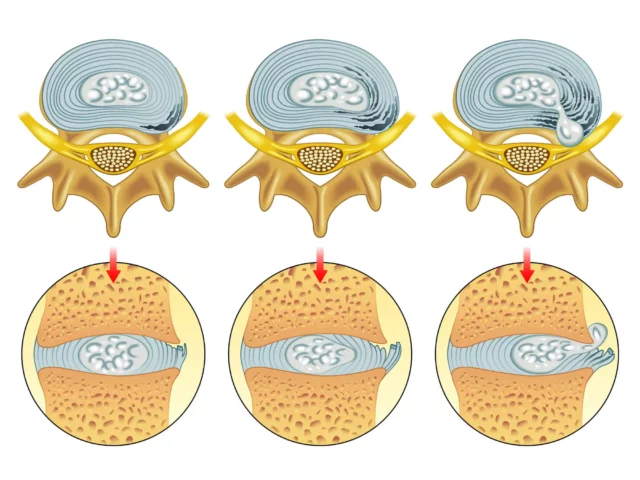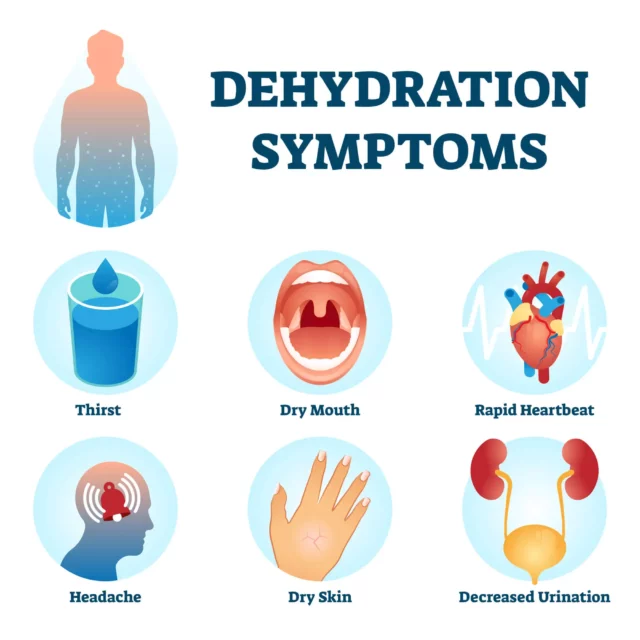Lifestyle factors and daily habits are profoundly intertwined with our mental and physical health. In easing chronic pain and boosting overall health, hydration can be as impactful as nutrition and exercise. Poor hydration can lead to a cascade of complications and detrimental effects, including fatigue, gastrointestinal problems, and low blood pressure. Dehydration can also be the root cause of your back pain.
Understanding the real underlying cause of your back pain can free you from taking pharmaceuticals daily and guide you in the choice of an effective treatment. At NextPain Care, our holistic approach can help you identify and address the source of your back pain, laying the foundations for long-lasting spinal health.
Dehydration And Back Pain: How Hydration Affects Your Spine
The human body is composed of 60% water, the vital fluid needed for essential bodily functions, cellular processes, and chemical reactions. Drinking enough water replenishes the fluids lost through sweating, breathing, and waste removal. Hydration supports your body’s metabolism, prevents overheating, and keeps the skin supple, healthy, and youthful.
Dehydration, or losing water faster than it is replenished, can significantly hinder these essential functions and cause a range of complications. In particular, dehydration can be one of the root causes of back pain.
The spine is composed of 33 vertebrae, interlocking bones responsible for enabling the spine’s range of movement. Between each of these bones is a soft cushioning structure known as an intervertebral disc. These discs play an essential role in:
- Absorbing shock while walking, running, or jumping
- Distributing and balancing loads during movements
- Keeping the spine mobile
- Safeguarding the spinal bones from friction and shock damage
Intervertebral discs are composed mostly of water, which allows them to create the hydrostatic pressure necessary to counteract the compressive forces the spine is exposed to at any given time. In a healthy spine, the water content of each disc declines throughout the day due to gravity and pressure and is then replaced while we sleep through a process known as intradiscal fluid exchange.
However, dehydration or hypohydration (having sustained low levels of hydration) can prevent the discs from accessing the water needed to retain their size, remain supple, and counteract the impact of external forces and loads. When this happens, the lack of cushioning exposes the spine’s bones to friction and shock damage. Irritation of tissues can lead to inflammation, swelling, and pain, preventing you from moving your spine as you should.
In severe cases, poor hydration can cause the intervertebral disc to lose its elasticity, leading to painful conditions such as disc tears, bulging discs, or herniated discs.
Dehydration can also cause several other effects that can worsen your back pain. For example, hypohydration can increase pain sensitivity, making you experience painful sensations more intensely. Low hydration can also cause the muscles in the spine to become stiffer, which inhibits your range of movement and leads to painful muscle spasms.
If your back pain is associated with your menstrual cycle, hypohydration can intensify painful sensations and lower your pain threshold during critical phases such as menstruation.
Dehydration Signs And Symptoms
Given the impact of dehydration on your musculoskeletal and spinal health, it is critical to take steps to prevent dehydration and hypohydration—starting with learning to recognize the signs of this condition.
Common symptoms of dehydration include:
- Headaches: One of the first symptoms of dehydration is head and neck pain. This symptom occurs when the water content around the brain declines, causing the brain to shrink and pull away from the skull. Dehydration can also stiffen the neck muscles and lead to tension-like headaches.
- Bad breath: Not drinking enough water can hinder the production of saliva in the mouth. Without enough saliva, the mouth tends to dry out, creating the perfect environment for bacteria to live and multiply, leading to halitosis (bad breath).
- Dark urine: When there is not enough water in the body, the processes responsible for expelling waste, such as urination, are inhibited. So, when you are dehydrated, you may go to the bathroom less often, and your urine may be dark and smelly.
- Fatigue: Water is essential to the cellular processes responsible for breaking down nutrients and using or storing energy. When you are dehydrated, your cells are unable to produce energy, leading to fatigue, tiredness, dizziness, and lightheadedness.
- Muscle cramps: Muscle cramps are the result of dehydration-induced muscle stiffness. Additionally, according to a 2019 study, drinking water after suffering dehydration dilutes sodium and electrolyte concentrations, making muscles more prone to cramping.
- Dehydrated skin: Dehydration is the root cause of several skin conditions, including dry skin, itchy patches, and scaling. Inadequate water consumption can also worsen disorders such as psoriasis, make fine lines more visible, reduce the skin’s elasticity, and give your complexion a dull appearance. Dehydrated skin isn’t the same as dry skin, which occurs when the skin does not produce enough natural oils.
Vision problems: When the eyes aren’t properly lubricated, you may suffer from conditions such as dry eyes, blurry vision, double vision, tired eyes, and headaches. These symptoms should only be temporary and improve with hydration.
Impact Of Hydration On Spinal Discs
So, what happens to the spinal discs when you are not drinking enough water? As seen above, dehydration can cause tissues throughout the body to shrink and stiffen. A similar effect occurs in the intervertebral discs in the spine.
The cushioning discs between the vertebrae are composed of two parts:
- The annulus fibrosus: This is the outer ring of the disc, made of multiple layers of stronger cartilaginous fiber.
- The nucleus pulposus: This is the core of the disc, made of a softer, gel-like substance.
When healthy, 80-85% of the nucleus pulposus is made of water. This water content is dispersed during the day as the spine supports movements and absorbs shock and pressure. However, while we sleep, the discs regain all the lost water content, increasing the body’s height by as much as 0.5 inches (1.3 cm) by the morning.
However, prolonged dehydration can prevent the discs from replenishing their water content, which can leave the spinal bones and surrounding tissues unprotected against shock and friction damage. When the water content of the nucleus pulposus reaches 70-75%, the spine can experience severe degeneration and permanent alteration of its ability to deal with loads and pressure.
Tips For Staying Hydrated During The Day
Although dehydration can cause chronic back pain, this risk factor is easy to address and modify: all you need to do is stay hydrated. If you are struggling to manage your water intake, these strategies can help:
- Introduce more fresh fruit, raw vegetables, smoothies, freshly squeezed juices, and broths to your diet.
- Follow the official recommendations for water intake: drink at least 2 liters of water a day (or eight 8-ounce glasses).
- Avoid drinks such as coffee, tea, and soda. Beverages containing sugar, caffeine, or artificial sweeteners contribute to dehydration.
- Adjust your water intake as needed. In hot weather, you’ll lose water much faster than normal through sweating. Increase your water intake to 2.5 liters a day on these occasions.
- When exercising, increase your water intake, rehydrate correctly after exercise, and choose water with added electrolytes.
- Make drinking water more enjoyable by choosing an appealing reusable water bottle and adding fresh fruit or herbs like mint to your drink.
- Track your hydration levels by looking at the color of your urine: the clearer your urine, the more hydrated you are. Alternatively, download a water-tracking app.
Last but not least, remember to drink before you are thirsty! Building a habit of sipping water throughout the day can help you stay hydrated effortlessly.
What If Increasing Hydration Levels Isn’t Enough?
If you have increased your water intake but the back pain persists, it is time to seek an accurate diagnosis for your condition and identify the root cause of your chronic pain.
When partnering with the specialists at NextPain Care, you can pinpoint the exact cause of your back pain and obtain a personalized treatment program designed to improve your spinal health.
Seeking Medical Attention And Diagnostic Procedures
How NextPain Care Approaches Back Pain
Keep Your Spinal Health At Its Optimum Condition
Suffering from back pain that doesn't seem to go away?




